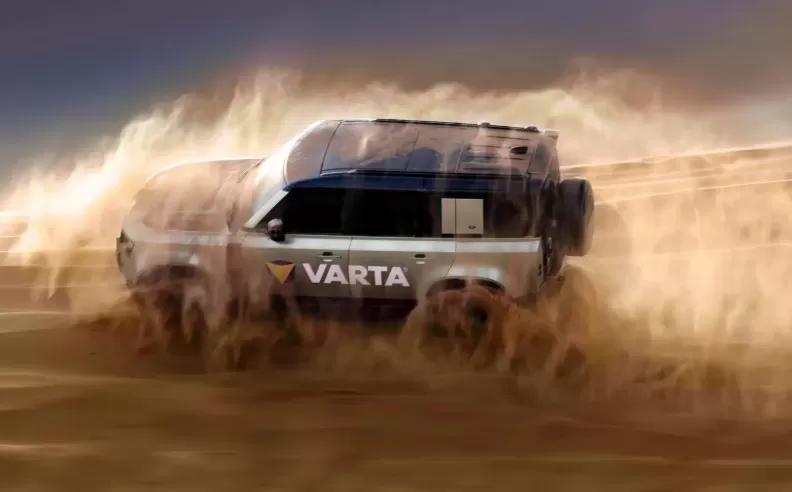We have seen the market fluctuate lately globally with many automotive brands some struggling and others coping and some even drastically changing their positions, products, and messages.
In this rollercoaster of times, we saw an opportunity to sit down with Philippe Claverol, Head of Overseas Markets, Maserati, and understand after the huge change in Stellantis group management, what the future of Maserati and is the V8 Coming Back.
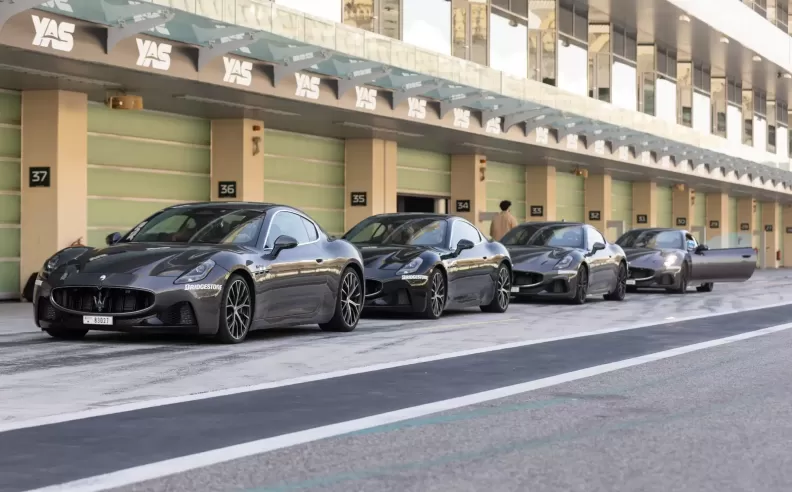
Motor 283: Okay, the famous question. I'll start with it. Since my experience in the automotive world began about 20 years ago in rally racing, endurance races, and race tracks, I remember the sound of McLaren and Maserati engines. But Maserati had the most beautiful engine sound ever, and now we've lost it because of the turbo. Why didn't you keep the distinctive tone that made anyone who heard a Maserati pass by instantly recognize it?
Philippe: You're probably referring to the V8 engine sound. Now, just like in Formula 1, we've transitioned to V6 engines, which makes the sound slightly different. Some of our customers have pointed this out, requesting a deeper and more powerful sound. We're working on improving that, and I think the GT2 Stradale model has a good sound, though it's not like the V8. V6 engines have a higher frequency due to the faster-moving pistons. However, we must comply with regulations, especially since sound and emission laws have become stricter in many markets. That's why this change has happened, but I can assure you that we're working on delivering a sound that better meets customer expectations, particularly in the Gran Turismo model.
Motor 283: Okay, I understand the regulations, especially in Europe, but there's always a secret button. I mean, there's always a way to work around some of the laws.
Philippe: In some countries, yes, but in others, they even prohibit that solution. It's a bit complicated. In some cars, sound isn't a major concern, but when it comes to road-legal cars in Europe, we must comply with regulations. I know this is an issue for some customers, but we have some solutions. However, I can tell you that today, a V8 engine probably wouldn't even be legal, even if we wanted it.
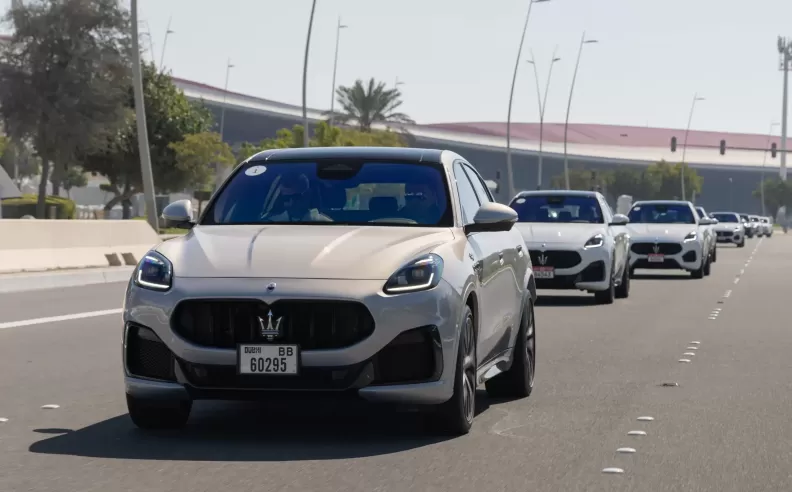
Motor 283: I have a global question regarding Maserati. Currently, there are major changes within the Stellantis group. When we first heard that Maserati was going fully electric, I was very disappointed. Is this still the company's strategic direction?
Philippe: No, I think the entire industry has slightly changed its stance, perhaps due to COVID-19 and what happened during the pandemic. Initially, the prevailing belief was that the shift to electric cars would happen very quickly. But what we see today is that the transition is happening more slowly than expected, for various reasons, including cost and the reluctance of some customers to adopt this technology.
Last year, we were moving at full speed toward electrification, but now we've realized that it will take longer than we initially thought. We still believe the future will be largely electric, but no one knows exactly when that will happen. That's why we now say we need electric cars like the Grecale, Gran Turismo, and Gran Cabrio because some markets demand them. For example, in Norway, electric car sales last month accounted for 98%.
Motor 283: True.
Philippe: But in Paris, if you buy a sports car, you’ll pay extremely high taxes to register it. So, we need electric cars, but in other markets, the demand for them isn't as high. In your region, for example, where oil is produced, demand for electric cars is lower.
Motor 283: But in California, the laws are also starting to change.
Philippe: Not yet, but they will change soon. So, our position is very simple: we have electric cars, we have internal combustion engines, and we're maintaining the V6 engine because it's part of the brand’s identity. However, we will adapt to changes because the pace of electrification isn't what we expected.
Motor 283: Exactly. We see that many brands that announced they would go fully electric are now realizing that the time isn’t right yet. So, some companies have shifted to hybrid technology. Is Maserati considering using its electric technology in hybrid engines?
Philippe: Actually, we’re fortunate that our current platforms support both types.
Motor 283: That's right.
Philippe: I can tell you that inside the company when we were discussing whether to develop a fully electric platform or a multi-energy platform, some people preferred the first option. But today, we're very happy that the multi-energy platform gives us great flexibility, allowing us to offer a fully electric version or an internal combustion version on the same chassis.
For example, with the Grecale, you can choose the Nettuno V6 engine, or you can opt for the all-electric Folgore version. The same goes for the Gran Turismo and Gran Cabrio. So, we don’t have to make a definitive decision in one direction. However, we see that plug-in hybrid technology presents a good opportunity in some markets.
Motor 283: But what about performance? Not just in terms of fuel efficiency.
Philippe: As you know, in terms of performance, if a car is a plug-in hybrid, you're carrying the weight of the gasoline engine plus the weight of the battery, which is the downside of it. There’s no magic solution to this issue.
Motor 283: Yes.
Philippe: So, for now, we have both options: fully electric cars and fully gasoline-powered cars. In the future, we may increase the use of hybrid engines, but what we observe is that sports car customers have mixed reactions to hybrids. I won’t mention other brands, but if you look at the resale value of some hybrid sports cars, you’ll see that they don't hold their value as well as fully internal combustion sports cars.
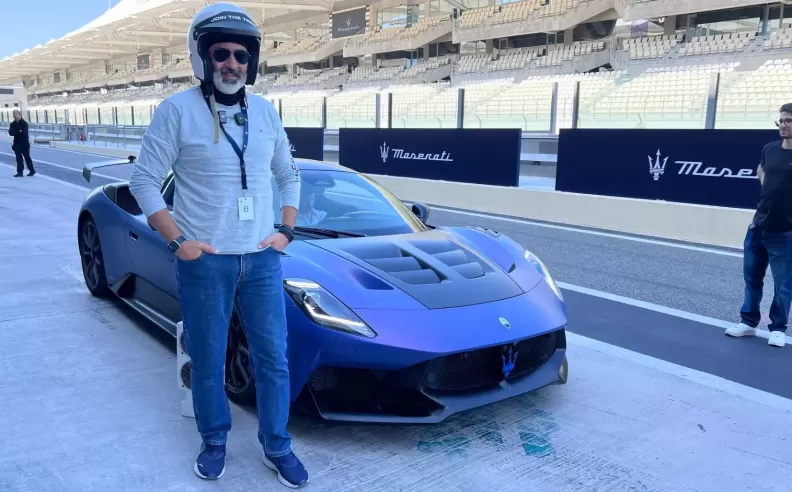
Motor 283: I completely agree. I have a question regarding heritage and legacy. Maserati has always been considered an Italian luxury brand in the '50s, '60s, '70s, '80s, and even the '90s. But today, with the Grecale—not the Gran Turismo, because that has its place—I don’t feel that Maserati still maintains that high level of Italian luxury, especially with the Grecale.
Philippe: Well, that’s an important question.
Motor 283: Yes, is Maserati heading in a different direction?
Philippe: Let’s go back to the core of what Maserati represents. Maserati started by building race cars.
Motor 283: Yes.
Philippe: The first Maserati cars were race cars. We don’t always remember that because we weren’t born yet, but Fangio was racing with a Maserati in 1957. So, Maserati comes from the world of racing. Now, let’s talk about the Grecale. First, if you sit inside the car and look at the quality of the finishes, you’ll see that it is indeed luxurious.
Motor 283: I completely agree.
Philippe: It's luxurious. And honestly, I don't think there's any other SUV in this category that surpasses it in terms of luxury and quality. I know some competing brands very well. If you take the Grecale to a racetrack—which we can't do now because we don't have the necessary permits—but if one of Maserati’s professional drivers, like Andrea Felice, takes you for a drive on the track, you’ll see that its performance is top-tier. If you have this impression, it means we may have failed to communicate our marketing message properly.
Motor 283: I’ll tell you my perspective without mentioning names. When we talk about luxury sports cars, some brands maintain a small crossover segment, but the top-tier brands do not. Instead of further developing the Levante or a slightly larger model, you decided to enter the smaller crossover segment, which is what caught my attention.
Philippe: But that doesn’t mean we won’t launch a larger SUV in the future.
Motor 283: No, of course not.
Philippe: The Grecale is 4.85 meters long. In some markets, that’s considered large, but in the United States, it’s considered compact. In Europe, a 4.85-meter-long car is quite big, especially in old cities with narrow streets. So, I don’t think it’s just about size—it’s about what the car offers.
Motor 283: Yes.
Philippe: If you look at the Grecale, we have a version with a V6 engine producing 530 horsepower. If you want a car with 500 horsepower, you usually need a V8 engine.
Motor 283: Yes.
Philippe: We also have turbocharged 2.0-liter engines with 330 or 300 horsepower, in addition to the V6 Nettuno engine because we know there’s a market for this type of vehicle. I find the Grecale perfect for me and my family. In Europe, larger cars are becoming problematic due to limited space. So, it’s not just about size—it’s about the features the car provides.
Motor 283: I have a question about electrification, specifically Formula E racing. With the changes in strategy, will Maserati remain in Formula E through Generation 4 and beyond?
Philippe: We have confirmed our participation until the end of 2026.
Motor 283: Which is the start of Generation 4?
Philippe: Generation 4 has already begun.
Motor 283: We are currently in Generation 3.5 with the A3EVO edition.
Philippe: Yes, and the next generation will start next year. Maserati is committed to staying until then. I visited the Formula E race in Mexico, and I still see it as an interesting championship. By the way, no one knows what will happen to Formula 1 in 10 to 15 years—maybe it will become fully electric. No one knows.
Motor 283: True.
Philippe: Formula E is exciting because it helps in technological development. I discussed with the engineers and asked them: "What technologies can we take from Formula E cars and use in our production vehicles?" They told me that some technologies could increase range and performance, but the cost would be extremely high. So, we see it as an excellent environment for developing our technology and improving our electric vehicles.
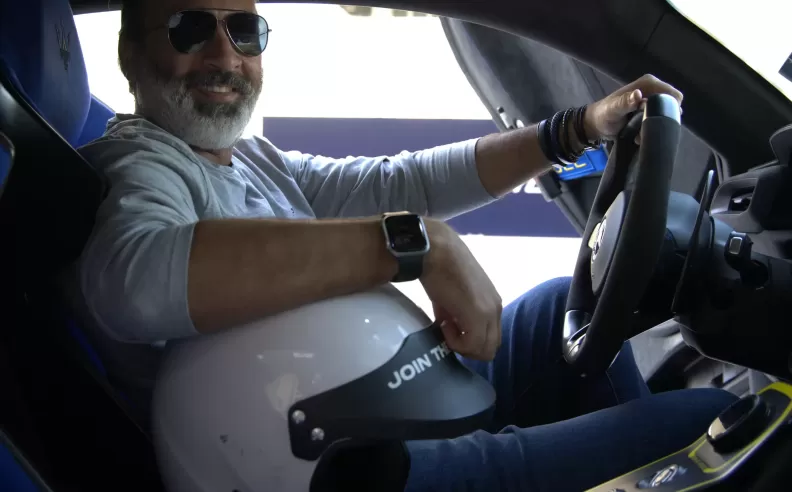
Motor 283: But since the trend is shifting slightly between electric cars and internal combustion engines, is there a chance that V8 engines will make a comeback in the future to revive that beautiful Maserati sound heritage?
Philippe: I can’t tell you about our plans because these are internal secrets. But we won’t produce more than 914 units of the GT2 Stradale, a number that symbolizes the founding year of Maserati. Why are we doing this?
First, because we believe the market for people who want a road-legal track car is limited. Second, we want to protect the car’s value, which is very important, as you know. With the GT2 Stradale, we are enhancing the performance of the V6 Nettuno engine, and you may have noticed that its sound has changed. This is the direction we are taking when it comes to larger engines.
Yesterday, I was reading the French sports car magazine Sport Auto, and they were testing a German car with a big name, but with a smaller engine. I was observing the power they extract from it and so on. When you talk to engineers, they tell you that sports cars are about efficiency, how much power you can extract from the engine in terms of acceleration, weight reduction, and so on. V8 engines are not the optimal solution. By the way, why does Formula 1 use V6 engines? Because V8s are heavier. That’s the engineers' answer. But I’m not sure if that’s what will happen in the future, because it all comes down to efficiency. If you can get a lighter engine with more power, better performance, and faster acceleration, then maybe that’s the ideal formula.
Motor 283: Since we’re talking about weight, I have a question about the Gran Turismo. It has always been rear-wheel drive, so why did you make it all-wheel drive and add extra weight?
Philippe: Good question. You’re asking someone who once did a 360-degree drift on a French highway on just two wheels! (laughs) I think we made it all-wheel drive because our customers drive these cars daily, regardless of the weather and road conditions. In Europe, it makes sense because we go skiing, as do people in the United States and many other markets. So, we chose all-wheel drive to enhance safety.
The Gran Cabrio is a car you can drive every day, it’s not just a car you keep in your garage, hoping its value will increase for resale. That’s why we chose all-wheel drive. True, the weight has increased, but even if you take it to the track, it still performs exceptionally well and is now easier to drive.
And we have to remember something important: Maserati comes from racing, but it’s also known for the Gran Turismo concept, which means high performance, craftsmanship, luxury, and comfort. But it also means that these are cars you can drive daily with ease.
Take the MC20, for example. We have customers who use it daily for commuting, young and old alike. I remember a 75-year-old customer who owned a dream garage, but he told me:
"The MC20 is the only sports car I own that I can drive every day with ease."
If he wants to go to the track, he can. But at the same time, it’s easy to drive. This balance between performance and comfort explains why we chose all-wheel drive, it adds an extra advantage to the car.
Motor 283: So, each category has its target audience?
Philippe: Exactly. That’s our philosophy, and that’s why we chose all-wheel drive. And honestly, I probably shouldn’t be telling you this, but you already know the car and what it offers.

Started my career in Automotive Journalism in 2015. Even though I'm a pharmacist, hanging around cars all the time has created a passion for the automotive industry since day 1.
